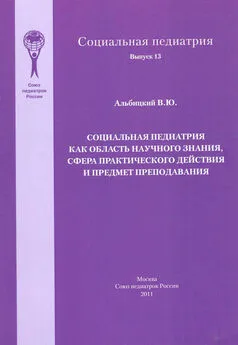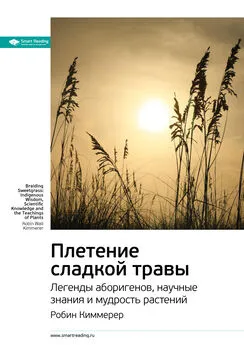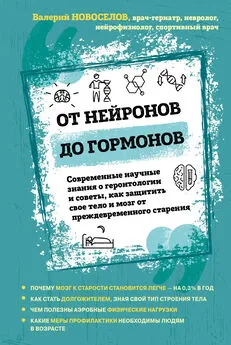Нико Штер - Власть научного знания
- Название:Власть научного знания
- Автор:
- Жанр:
- Издательство:Алетейя
- Год:2015
- Город:Санкт-Петербург
- ISBN:978-5-9905769-3-3
- Рейтинг:
- Избранное:Добавить в избранное
-
Отзывы:
-
Ваша оценка:
Нико Штер - Власть научного знания краткое содержание
В центре внимания социологов Нико Штера и Райнера Грундманна – вопрос о том, при каких условиях научное знание влияет на практическую политику и как именно организовано это влияние.
В поисках ответа авторы книги анализируют три кейса – экономическую теорию и политику Кейнса, науку о расах и ее роль в трагедии холокоста, а также исследования в области климатологии, их восприятие в обществе и их последствия.
Власть научного знания - читать онлайн бесплатно ознакомительный отрывок
Интервал:
Закладка:
Bell, Daniel. 1973. The Coming of Post-Industrial Society. A Venture in Social Forecasting. New York.
Bell, Daniel. 1987. “tte World and the United States in 2013”, in: Daedalus 116. P. 1–31.
Benedick, Richard E. 1991. Ozone Diplomacy: New Directions in Safeguarding the Planet. Cambridge, MA: Harvard University Press.
Bennis, Warren G., and Kenneth D. Benne, and Robert Chin (Eds.) 1961. The Planning of Change. New York.
Berenbaum, Michael. 1993. The World Must Know: The History of the Holocaust as told in the United States Holocaust Memorial Museum. Boston: Little, Brown and Company.
Berk, Richard A. 1987. “How Applied Research Can Save Sociologists from Themselves”, in: The American Sociologist 18. P. 119–124.
Berlin, Isaiah. 2000. The Power of Ideas. Ed. by Henry Hardy. London.
Beyer, Janice M., and Harrison M. Trice. 1982. “tte Utilization Process: A Conceptual Framework and Synthesis of Empirical Findings”, in: Administrative Science Quarterly 27. P. 591–622.
Biddis, Michael Denis. 1970. Father of Racist Ideology. The Social and Political Thought of Count Gobineau. New York.
Biddle, Bruce J. 1987. “Social Research and Social Policy”, in: The American Sociologist 18. P. 158–166.
Black, Donald. 1972. “The Boundaries of Legal Sociology”, in: Yale Law Journal 81. P. 1086–1110.
Blalock, Hubert M. 1979. “Dilemmas and Strategies of Theory Construction”, in: William E. Snizek, and Elsworth R. Fuhrman, and Michael K. Miller (Eds.) Contemporary Issues in Theory and Research. A Metasociological Perspective. Westport, Connecticut.
Bleaney, Michael. 1985. The Rise and Fall of Keynesian Economics: An Investigation of its Contribution to Capitalist Development . New York: St. Martin’s Press.
Block, Fred, and Larry Hirschhorn. 1979. “New Productive Forces and the Contradictions of Contemporary Capitalism”, in: Theory and Society 7. P. 363–395.
Blume, Stuart S. 1978. “Policy as Theory: A Framework for Understanding the Contributions of Social Science to Welfare Policy”, in: Howard Freeman (Ed.) Policies Studies, Review Annual. Beverly Hills. P. 33–49.
Boas, Franz. 1934. “Race”, in: Edwin R.A. Seligman (Ed.) Encyclopedia of the Social Sciences . Band 13. New York. P. 25–36.
Boehmer-Christiansen, Sonja. 1994a. “Global Climate Protection Policy: üe Limits of Scientific Advice”. Part 1, in: Global Environmental Change 4. P. 140–159.
Boehmer-Christiansen, Sonja. 1994b. “Global Climate Protection Policy: üe Limits of Scientific Advice”. Part 2, in: Global Environmental Change 4. P. 185–200.
Boese, Franz. 1939. Geschichte des Vereins für Sozialpolitik 1872–1932.
Bohman, James. 1999. „Democracy as Inquiry, Inquiry as Democratic: Pragmatism, Social Science, and the Cognitive Devision of Labor“, in: American Journal of Political Science .
Böhme, Gernot, and Stehr, Nico (Eds.) 1986. The Knowledge Society. Dordreccht.
Böhme Gernot, and Stehr, Nico. 1990. „Wissensgesellschaften“, in: Universitetas 45. S. 225–231.
Bombach, Gottfried et al. (Eds.). 1963. Der Keynesianismus IV: Die beschäftigungspolitische Diskussion in der Wachstumsepoche der Bunderepublik Deutschland. Dokumente und Analysen. Berlin: Springer-Verlag.
Bormann, F. von. 1937 „Ist die Gründung einer europäischen Familie in den Tropen zulässig?“, in: Archiv für Rassen– und Gesellschafts-Biologie 32. S. 89-114.
Bös, Dieter, und Stolper, Hans-Dieter (Hg.) 1984. Schumpeter oder Keynes? Zur Wirtschaftspolitik der neunziger Jahre. Berlin.
Bosch, Aida, und Kraetsch, Clemes, und Renn, Joachim. 2001. „Paradoxien des Wissenstransfers“, in: Soziale Welt 52. S. 199–218.
Bossard, James H. S. 1932. „Applied Sociology and Major Social Problems”, in: Social Forces II. P. 188–190.
Boulding, Kenneth. 1973. “tte Shadow of the Stationary State”, in: Daedalus 102. P. 89–101.
Bourdieu, Pierre. 1980. Le sens pratique. Paris.
Boykoff, Maxwell T. 2007. “Flogging a Dead Norm? Newspaper Coverage of Anthropogenic Climate Change in the United States and United Kingdom from 2003 to 2006”, in: Area 39 (2).
Boykoff, Maxwell T., and Boykoff, Jules M. 2004. “Balance as Bias: Global Warming and the US Prestige Press”, in: Global Environmental Change 14 (2). P. 125–136.
Bressler, Marvin. 1967. “Sociology and Collegiate Education”, in: La-zarsfeld et al. (Eds.) The Uses of Sociology. New York. P. 45–77.
Brewer, Garry D. 1973. Polititcians, Bureaucrats, and the Consultant. A Critique of Urbam Problem Solving. New York.
Brooks, Harvey. 1982. “Stratospheric Ozone, the Scientific Community and Public Policy”, in: Frank A. Bower and Richard B. Ward (Eds.). Stratospheric Ozone and Man. Boca Raton: CRC Press. 201–216.
Brothwell, John. 1988. “tte General Heory after Fifty Years – Why are We not all Keynesians?”, in: Hillard, John (Ed.) J.M. Keynes in Retrospect. The Legacy of the Keynesian Revolution. Aldershot. P. 45–63.
Browning, Christopher R. 1992. Ordinary Men: Reserve Police Battalion 101 and the Final Solution in Poland. New York.
Brownlee, Elliot W. 1990. “Economists and the Formation of the Modern Tax System in the United States: He World War I Crisis”, in: Furner, Mary O., and Supple, Burry (Eds.) The State and Economic Knowledge. The American and British Experiences. Cambridge. P. 401–435.
Brüning, Heinrich. 1970. Memoiren 1918–1934. Stuttgart: Deutsche Verlags-Anstalt.
Brunner, Karl, and Meltzer, Allan. 1977. „He Explanation of Inflation: Some International Evidence“, in: American Economic Review 67. P. 148–154.
Brunner, Ronald D. 2006. “A Paradigm for Practice”, in: Policy Sciences 39. P. 135–167.
Brunner, Ronald D. et al. 2005. “Preface”, in: Brunner, Ronald et al. Adaptive Governance. Integrating Science, Policy, and Decision Making. New York. P. VII–XIII.
Brunner, Ronald et al. 2005. Adaptive Governance. Integrating Science, Policy, and Decision Making. New York.
Bulmer, Martin (Ed.) 1985. Essays on the History of British Sociological Research . Cambridge.
Bulmer, Martin (Ed.) 1987. Social Science Research and Government. Comparative Essays on Britain and the United States. Cambridge.
Bulmer, Martin. 1978. “Social Science Research and Policy-Making in Great Britain”, in: Bulmer, Martin (Ed.) Social Political Research. London. P. 3–43.
Bulmer, Martin. 1990. “Successful Applications of Sociology”, in: Bryant, Christopher G.A., and Becker, Henk A. (Eds.) What Has Sociology Achieved? London. P. 117–142.
Bulmer, Martin. 1996. “He Sociological Contribution to Social Policy Research”, in: Clark, John (Ed.) James Coleman . London. P. 103–131. Burke, Kenneth. 1945. A Grammar of Motives. New York.
Burleigh, Michael, and Wolfgang Wippermann. 1991. The Racial State: Germany 1933–1945. Cambridge and New York: Cambridge University Press.
Bush, Vannevar. 1945. Science – The Endless Frontier: A Report to the President on a Program for Post-War Scientific Research. Washington, D.C.
Cains, Glen G., and Watts, Harold W. 1970. “Problems in Making Policy Inferences from the Coleman Report”, in: American Sociological Review 35. P. 228–242.
Calkins, Robert D. 1966. “tte Production and Use of Economic Knowledge”, in: American Economic Review 56. P. 530–537.
Cameron, Norman, and Stevens R. H. (Eds.) 1988. Hitler’s Table Talk. New York, London.
Campbell, John L. 2002. “Ideas, Politics, and Public Policy”, in: Annual Review of Sociology 28. P. 21–38.
Caplan, Nathan. 1979. “tte Two-Communities Theory and Knowledge Utilization”, in: American Behavioral Scientist 22 (3). P. 459–470.
Carnegie Commission on Science, Technology and Go, Enabling the Future. 1999. Linking Science and Technology to Societal Goals. Washington, D.C.
Carroll, James W. 1954. “Merton’s Thesis on Science”, in: American Journal of Economics and Sociology 13. P. 427–432.
Cartwright, Nancy, and Cat, Jordi, and Fleck, Lola, and Uebel, Thomas E. 1996. “Introduction”, in: Cartwright, Nancy, and Cat, Jordi, and Fleck, Lola, and Uebel, Thomas E. (Eds.) Otto Neurath. Philosophy between Science and Politics. Cambridge.
Carvalho, Anabela, and Jacquelin Burgess. 2005. “Cultural Circuits of Climate Change in UK Broadsheet Newspapers, 1985–2003”, in: Risk Analysis 25 (6). P. 1457–1469.
Cash, David W., and Clark, William. 2001. “From Science to Policy: Assessing the Assessment Process”, John F. Kennedy School of Government, Harvard University, Faculty Research Working Papers Series 2001, RWP01-045.
Cash, David W. 2001. “In Order to Aid in Diffusing Useful and Practical Information: Agricultural Extension and Boundary Organizations”, in: Science, Technology & Human Values 26. P. 431–453.
Cash, David W., and Clark, William, and Alcock, Frank, and Dickson, Nancy, and Eckley, Noell, and Jäger, Jill. 2002. “Salience, Credibility,
Legitimacy and Boundaries: Linking Research, Assessment and Decision Making”, John F. Kennedy School of Government, Harvard University, Faculty Research Working Papers Series 2002, RWP02-046.
Cavell, Stanley. 1969. Must We Mean What We Say? New York.
Chamberlain, Houston Stewart [1900] 1968. Foundations of the Nineteenth Century. New York.
Chapman, Ralph J. K. 1990. “Information Diffusion: Reconciling Scientific Knowledge and Public Policy”, in: Prometheus 8. P. 240–256.
Cherns, Albert. 1979. Using the Social Sciences. London.
Chick, Victoria. 1987. “Money Matters”, in: Times Higher Educational Supplement January 2. P. 8.
Christie, Maureen. 2001. Ozone Layer: A Philosophy of Science Perspective. Cambridge: Cambridge University Press.
Cicourel, Aaron V. 1986. “tte Reproduction of Objective Knowledge: Common Sense Reasoning in Medical Decision Making”, in: Böhme, Ger-not, and Stehr, Nico (Eds.) The Knowledge Society. Dordrecht. S. 87-122.
Claessens, Dieter. 1963. “Soziologie als Beruf und das Problem möglicher Normativität angewandter Soziologie“, in: Soziale Welt 14. S. 264277.
Clerc J. O. 1942. “Walras and Pareto: Their Approach to Applied Economics and Social Economics”, in: The Canadian Journal of Economics and Political Science 8. P. 584–594.
Coddington, Alan. 1974. „What did Keynes really mean?”, in: Challenge (November-December). P. 13–19.
Cole, Stephen. 1994. “Why Sociology Doesn’t Make Progress like the Natural Sciences”, in: Sociological Forum 9. P. 133–154.
Читать дальшеИнтервал:
Закладка:










